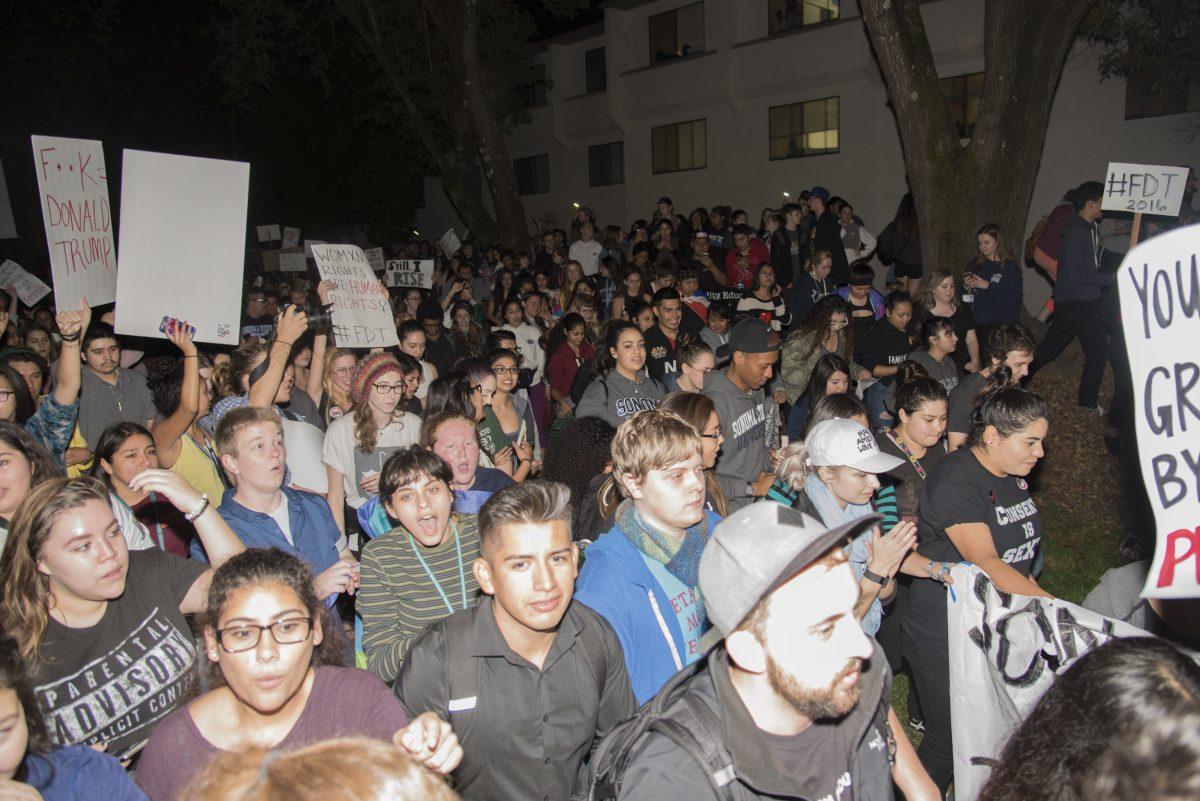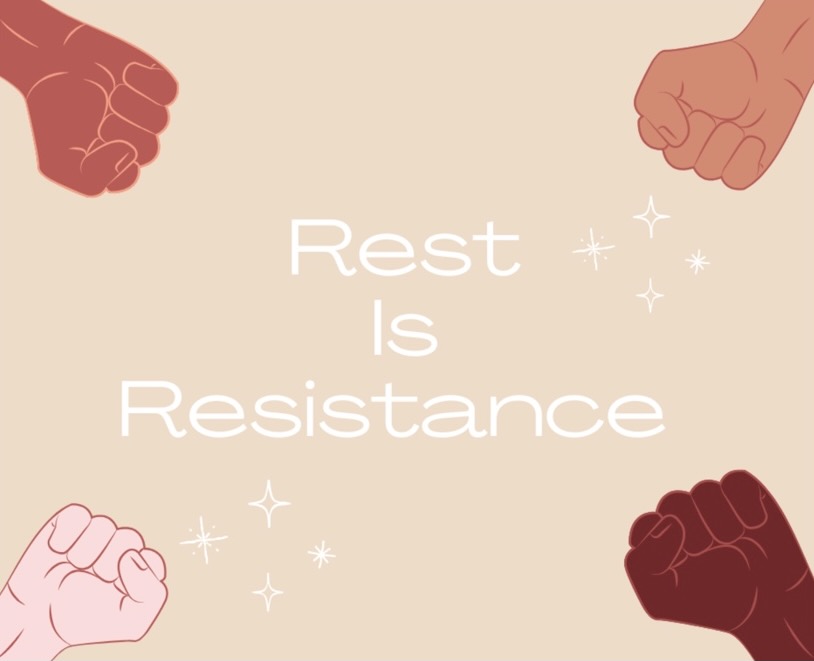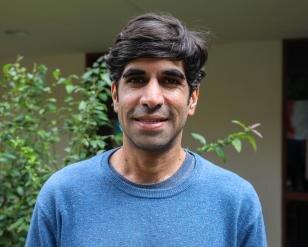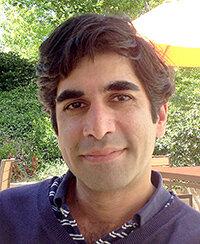Upon the publishing of a STAR article on April 13 titled, “Students with PTSD ask for trigger warnings, teachers want ‘academic freedom’”, several students have come forward to say they felt forced to disenroll from one of professor Ajay Gehlawat’s classes at Sonoma State University (SSU) because of highly disturbing content they were forced to view during lectures as well as a lack of compassion and respect from the professor himself.
The STAR reached out to Gehlawat multiple times for comment but did not receive a response.
Clara George, an SSU student who disenrolled from Gehlawat’s course, reached out to the STAR to say that the article “Students with PTSD ask for trigger warnings, teachers want ‘academic freedom’” did not represent her or several other students’ perspectives on the issue and continued to gather statements from her peers.
George stated, “Despite the fact that his course was titled ‘Feminism in Film’ his synchronous class was far from a positive feminist environment. The class discussions, as facilitated by the professor, focused more on the bodies and sexuality of the women in them than the content of their mind and character.”
She continued, “When female participants would provide their perspectives on the films in discussion, their opinions would be undermined or disregarded altogether. Meanwhile, the male perspectives would be acknowledged and even celebrated.”
George went on to describe the environment within the class, where more than half the students ultimately dropped out, “After multiple times being blatantly ignored by Ajay, I was hesitant to speak in class, which would impact my participation and grade. When I did speak however, my comments were often disregarded in order to acknowledge another male perspective. On the other hand, when Ajay did recognize my participation in the class he would often gawk or laugh at my comments. This created a very toxic classroom environment in which Gehlawat used his position as professor to force his misogynistic views on his students.”
George was not the only student in the all-female class who felt that Gehlawat was abusing his role and power as a teacher.
A student who wished to remain anonymous told the STAR, “I specifically remember one day, when I decided to speak up and address the issue that I and other members of the class had with the content. I respectfully stated how important it was for a warning to be given when showing sexual abuse, rape, and misconduct in the classroom, as this may be a huge trigger for women in this class.”
As was reported in the first STAR article, the Academic Senate passed a resolution to dismiss trigger warnings in the classroom and instead direct students to speak with Disability Services or Counseling and Psychological services at SSU. The resolution passed with language that stated, “the SSU Academic Senate recognizes the right and duty of faculty to determine curricula, methods of teaching, appropriate class size, and [the Senate] opposes all acts of administrative encroachment into curricular matters.”
The original document submitted by the academic subcommittee, which Gehlawat is a member of included language that stated, “Some discomfort is inevitable in classrooms when the goal is to expose students to new ideas… as professors, we have the academic freedom to include whatever course content we deem necessary to address our course standards.” The document also included a paragraph that added, “the classroom is not the appropriate venue to treat PTSD or trauma, both of which may require professional treatment.”
It can be insinuated that the resolution was proposed because of concerns the class made with Gelhlawat’s lack of trigger warnings with his disturbing content.
“The response was very disheartening, as he proceeded to avoid my concerns and change the subject all together. The stubbornness and unwillingness to aid his classroom (of all women) proceeded to get worse, as he continued to assign more films with no warning and grim content. This felt like an abuse of power, not only from a teacher to a student, but from a man to a woman. I believe there needs to be a limit on teachers’ academic freedom. To agree on a limit as a society, there needs to be more communication directed towards this subject, and actions must be taken against teachers like Ajay Gehlawat,” the anonymous student said.
Olyvia Schaefer, another student from Gehlawat’s class who felt discriminzed against and harassed, told the STAR about the graphic images she and other students were forced to watch, “We were told to watch disturbing films that involved rape, sexual harassment, killing, violence, and much more. We would watch these films, write papers on them, then have seminars about them without any rhyme or reason about why we had to learn about it and how it went towards our education… One disturbing film that we were required to watch was called India’s Daughter, which was banned in India for its graphic content about rape and violence.”
Schaefer goes on to explain that her opinions were almost always disregarded in the seminars and that Professor Gehlawat would often change the subject if someone brought up being uncomfortable. She said, “If I said something the professor would immediately change the topic to talk about the rape scene or the women in the film and how they were being sexualized.”
Not only this, but Gehlawat’s lectures seemed incredibly biased to his students, “He would talk about rape as if it was normal and that the women seemed to deserve it. This was a class of only women and a male professor,” Schaefer continued, “[Gehlawat] was very biased about what we talked about because he only wanted to talk about what he thought was important, such as female bodies, what the female role did, why the rape could be okay, etc. Along with the seminars, our essays were graded the same way, we needed to write papers about rape, killings, female orientation in the films and were harshly graded on it. As a woman in today’s society, I feel violated and that I cannot properly do the assignments or activities that the class requires because of the harassment.”
Another student who wished to remain anonymous opened up to the STAR about the effects that Gehlawat’s lectures had on her mental health, “I never thought things would get worse until he made us watch a feminst film called, ‘Born in Flames’. As a college student, I felt like I should be able to handle very graphic images, but that one certain image has caused me PTSD. I remember watching that movie and when that graphic image showed up I was scared. That graphic image has triggered memories that I wish I never experienced. I felt disgusted, impure, and most of all angry at myself that those experiences had to happen to me. I never knew that a certain image could trigger such a traumatizing event.”
To protect herself, the student describes how she tried to avoid having to watch that scene again, “However, when I went into my feminsm zoom class, he [Gehlawat] replayed the scenes from this movie and of course he had to show the scene that triggered my PTSD.”
She told the STAR, “He gave no warning at all, and what made it worse was that he made us keep our cameras on. I could see my face on my camera and I was completely devastated. I’ll never forget the comment he made when he played the film. After the scene was shown he said, ‘Did you guys see that?’ From the look and expression on his face, I knew he was talking about that disturbing image that has caused me so much stress. To this day, whenever I hear the word feminism, or the professor’s name I see that graphic image and I remember those events that I wish had never happened. No class should ever cause someone this much trauma.”
Another anonymous student spoke about her experience in a different class with Gehlawat, “I was in Ajay Gehlawat’s LIBS 320C class. The films he had assigned for that class have featured violent scenes of rape and murders of women. Being required to watch these (and his refusal to give trigger/content warnings) has given me panic attacks and at one point made me throw up thinking about what I saw. For six weeks in a row, I was subjected to films that showed explicit murders, rapes, and abuse of women. I was forced to watch my worst nightmares in front of this man who had no compassion for us while he called them ‘great cinema’.”
That same student went on to point out, “That class started with 12 young women, and as you know, statistically 1 in 6 women is a victim of sexual violence, meaning he probably forced at least two victims to relieve their experiences. Frankly I feel appalled that he thought that to be appropriate. I did not feel it is right that my grades should depend on me being able to give ‘in depth and thoughtful analysis’ on the victimization of women.”
The student also experienced her thoughts and words being pushed to the side like her peers, “I was told on multiple occasions that my opinions and experiences on womanhood and feminism were invalid, because they weren’t the same as his. I was told that he understood what it meant to be a woman of color better than I, an actual woman of color, does. I did not feel safe or comfortable in this class, facing a lack of empathy and compassion for what students go through, both academically and as human beings.”
After more than half of Gehlawat’s class had disenrolled, a new class was formed, “We created this new class as a safe space for the women who were victimized in professor Gehlawat’s sections,” George told the STAR.
Noelia Brambila, the ASB president of SSU, also commented on the situation, “This professor, who is also the chair for the Academic Freedom Subcommittee, denied the concerns of those students because of his ‘academic freedom’ and him believing it’s his right….They are in a privileged position where they are not held accountable,”
Brambila continued, “I know there is good faculty out there that do care for our students but it’s not enough if they don’t act on it. We have numerous policies that held both students and administrators accountable but it’s not the same for faculty… This might be my own bias, but it’s a student perspective and I work for the students and no one else. So I’m glad to keep pushing for them to hear what we need and want.”



































